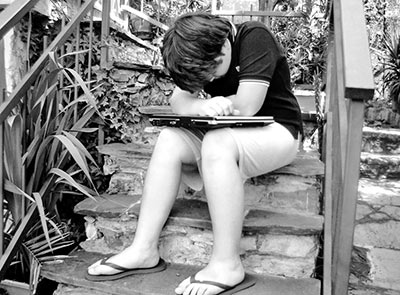LGBT YOUTH FACE 3 TIMES MORE ONLINE BULLYING
 A US report has revealed that lesbian, gay, bisexual and transgender (LGBT) youth experience nearly three times as much online bullying and harassment as non-LGBT youth (42% vs. 15%).
A US report has revealed that lesbian, gay, bisexual and transgender (LGBT) youth experience nearly three times as much online bullying and harassment as non-LGBT youth (42% vs. 15%).
LGBT youth were also twice as likely to say they had been bullied via text message (27% vs. 13%).
The GLSEN (Gay, Lesbian & Straight Education Network) report was based on a national survey of 5,680 students in 6 to 12th grade, ranging from 11 to 18 years of age.
According to the study’s authors, online victimisation contributed to negative self-esteem, increased depression and lower grades.
“The Internet impacts almost all aspects of our lives, but is particularly entrenched in the lives of youth, who are the most connected people online in our society,” said Dr. Eliza Byard, GLSEN’s Executive Director.
“LGBT youth continue to face extraordinary obstacles in their day-to-day lives whether at school or online, but the internet can be a valuable source of information and support when they have no one or nowhere else left to turn to. As social media evolve, so must our efforts to serve LGBT youth to ensure their safety, health and well-being.”
Despite experiences of bullying and harassment online, LGBT youth indicated that the internet is also a space that offers safer opportunities to express who they are, find peer support and gain access to resources not necessarily available in person.
LGBT youth were more likely to have searched for health and medical information compared to non-LGBT youth (81% vs. 46%), and half (50%) reported having at least one close online friend, compared to only 19% of non-LGBT youth.
LGBT youth reported high rates of civic engagement online as well. A majority of LGBT youth reported having taken part in an online community that supports a cause or issue (77%), promoted a cause or issue (76%), written a blog or posted comments on another blog about a cause or issue (68%), and used the Internet to participate in or recruit people for an event or activity (51%) in the past year.
“The Internet does not serve to simply reinforce the negative dynamics found offline regarding bullying and harassment,” commented Dr. Michele Ybarra, President and Research Director of the Center for Innovative Public Health Research.
“Rather, this technology also offers LGBT youth critical tools for coping with these negative experiences, including access to understanding and accepting friends, and exposure to health information that is unavailable elsewhere,” she said.
Leave a Reply